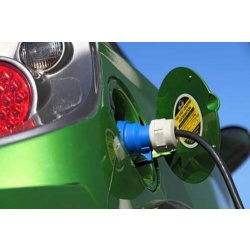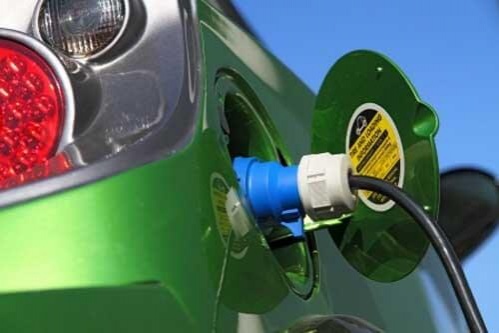
Luther College will install a recharging station for electric vehicles
A new initiative to bring Electric Vehicle recharging stations to Decorah is currently under discussion. The Winneshiek Energy District (WED) is teaming up with Luther College in order to install Decorah's first-ever Electric Vehicle charging station.
For the WED, the main goal of this project is to make Decorah more energy self-sufficient. However, achieving that goal takes some consideration.
According to Craig Mosher, the WED's Vice President, the range of travel is a key factor for the efficiency of Electric Vehicles. Under current standards, Electric Vehicles have longer charge times and are limited to around 50 miles, but it is expected that newer Electric Vehicles will have a 200-mile range.
"You need to plan carefully where you go," Mosher said. As the range gets farther, the importance of fast rechargers increases, says Mosher.
The current plan is to install a level II recharger, which takes about four hours to fully recharge a battery, behind Olin Hall this spring, with the possibility of adding more rechargers based on the success of the first. Currently, the other closest Electric Vehicle recharging station is attached to the courthouse in West Union. Phone applications are available to show the locations of recharging stations throughout Iowa.
Luther's Director of Facilities Jay Uthoff surveyed the Luther community on this issue last fall and found that many would be inclined to purchase Electric Vehicles if the charging stations existed. Several faculty members already have electric hybrids and have expressed an interest in establishing a charging station on campus. There will be a small fee for the use of the station although the cost has not been determined.
According to Uthoff, there has been interest in this project coming from prospective students and their families, some of whom drive an Electric Vehicle down to Decorah from larger cities throughout the Midwest.
CIty of Decorah Administrator Chad Bird says there is also an interest in locating a recharger within downtown Decorah in the near future. The initial plan is to locate the recharger in the lower level of the Co-Op parking lot. This recharger could be powered by solar panels and would be more powerful than the charging station proposed for Luther.
According to Bird, one possibility in establishing this station would be to place the solar panels on top of a newly constructed covered canopy which could be used by the local Farmer's Market as well.
Notwithstanding this plan's benefit toward energy usage, it could also benefit Decorah's economy. According to Mosher, if Decorah had a 30-minute recharger, Twin Cities residents would plan to stop in Decorah for a charge on long trips to Iowa City, Cedar Rapids or Davenport.
Solar energy entrepreneur Larry Grimstad emphasized the importance of this plan, saying that "the transportation of the future is going to be electrified, [Decorah] is going to take a leadership role."
Site designed and maintained by Iroc Web Design Services©.
Your Small Business Web Design Solutions.™


